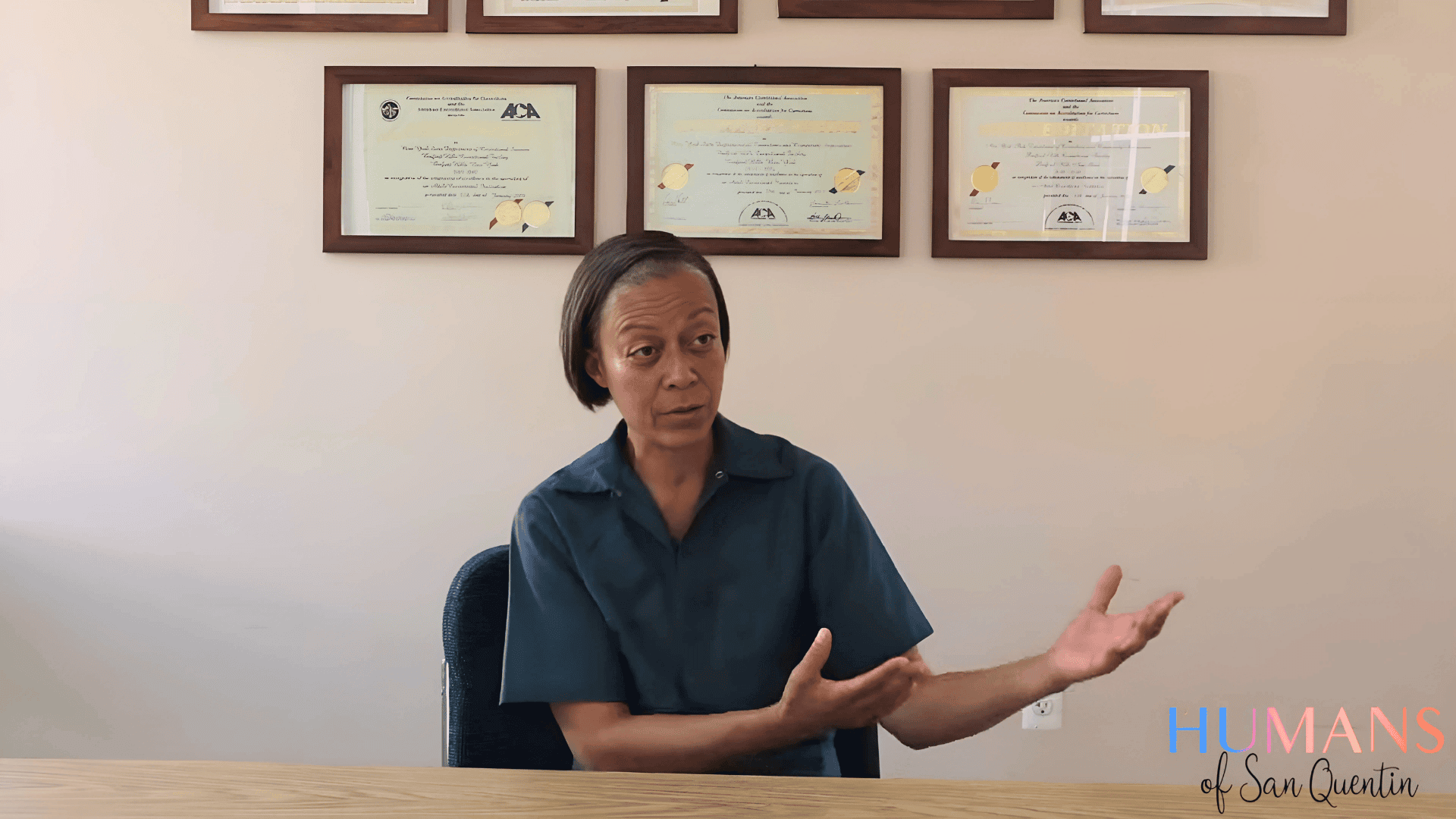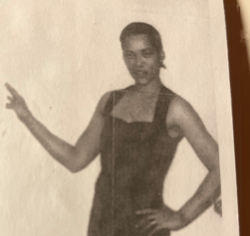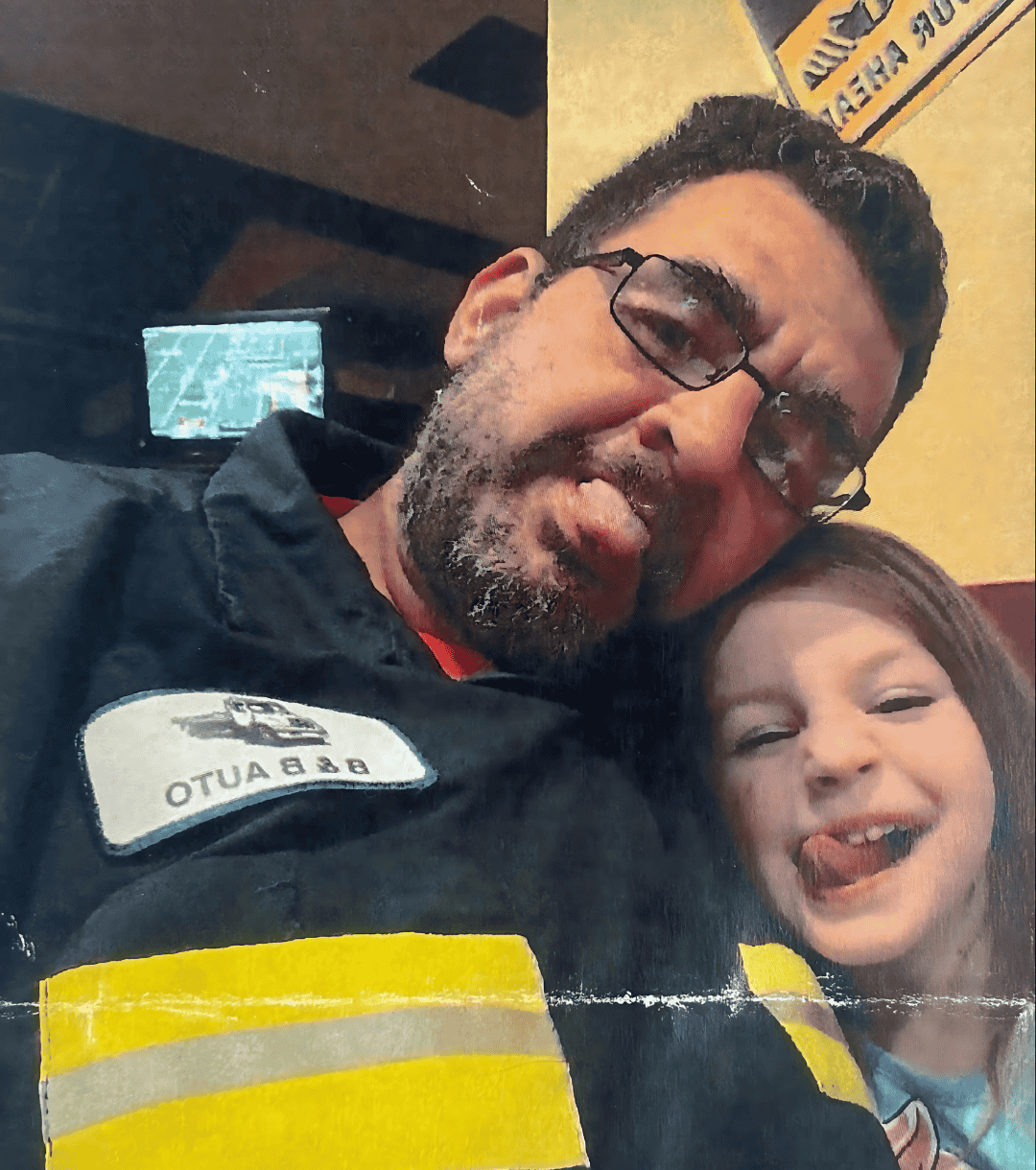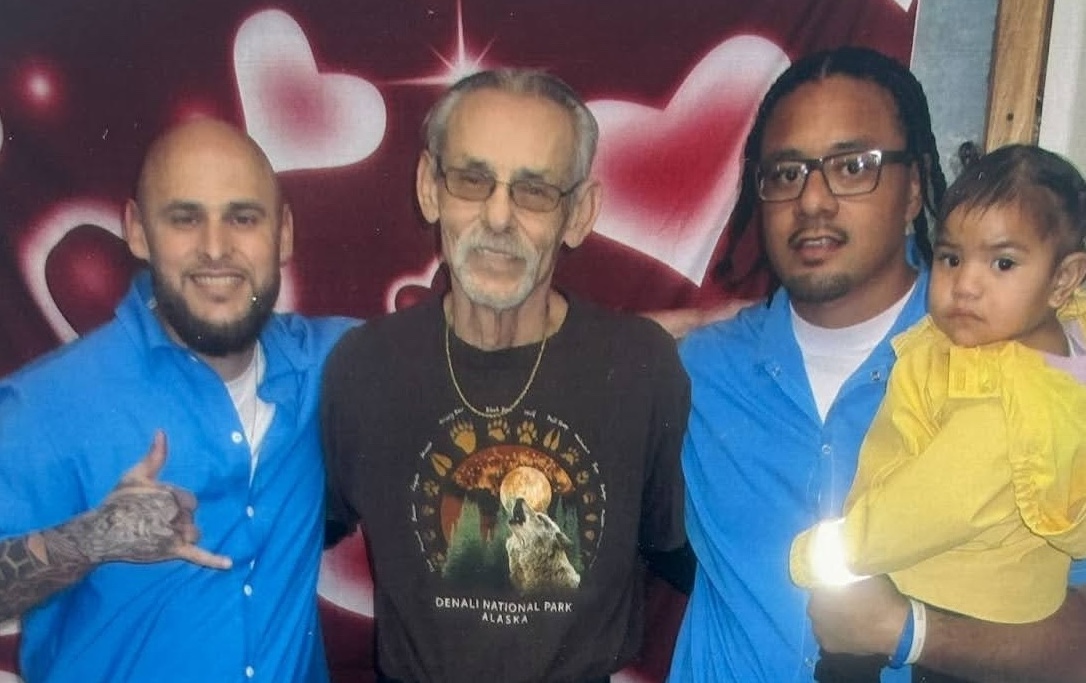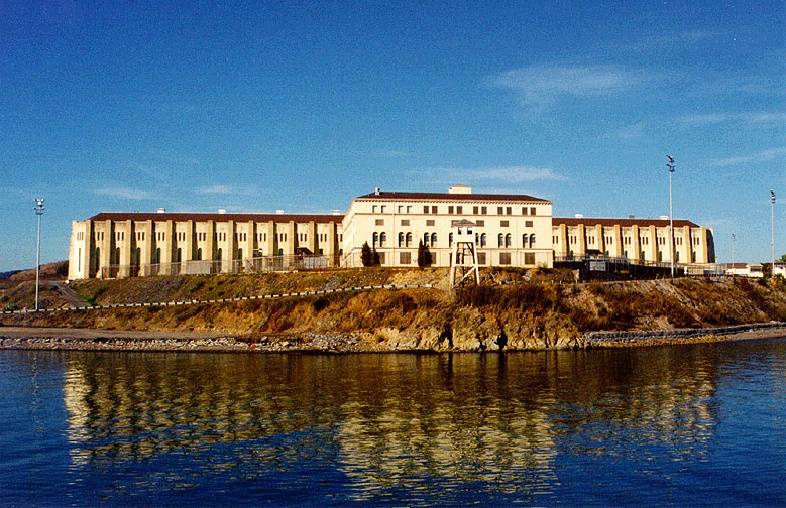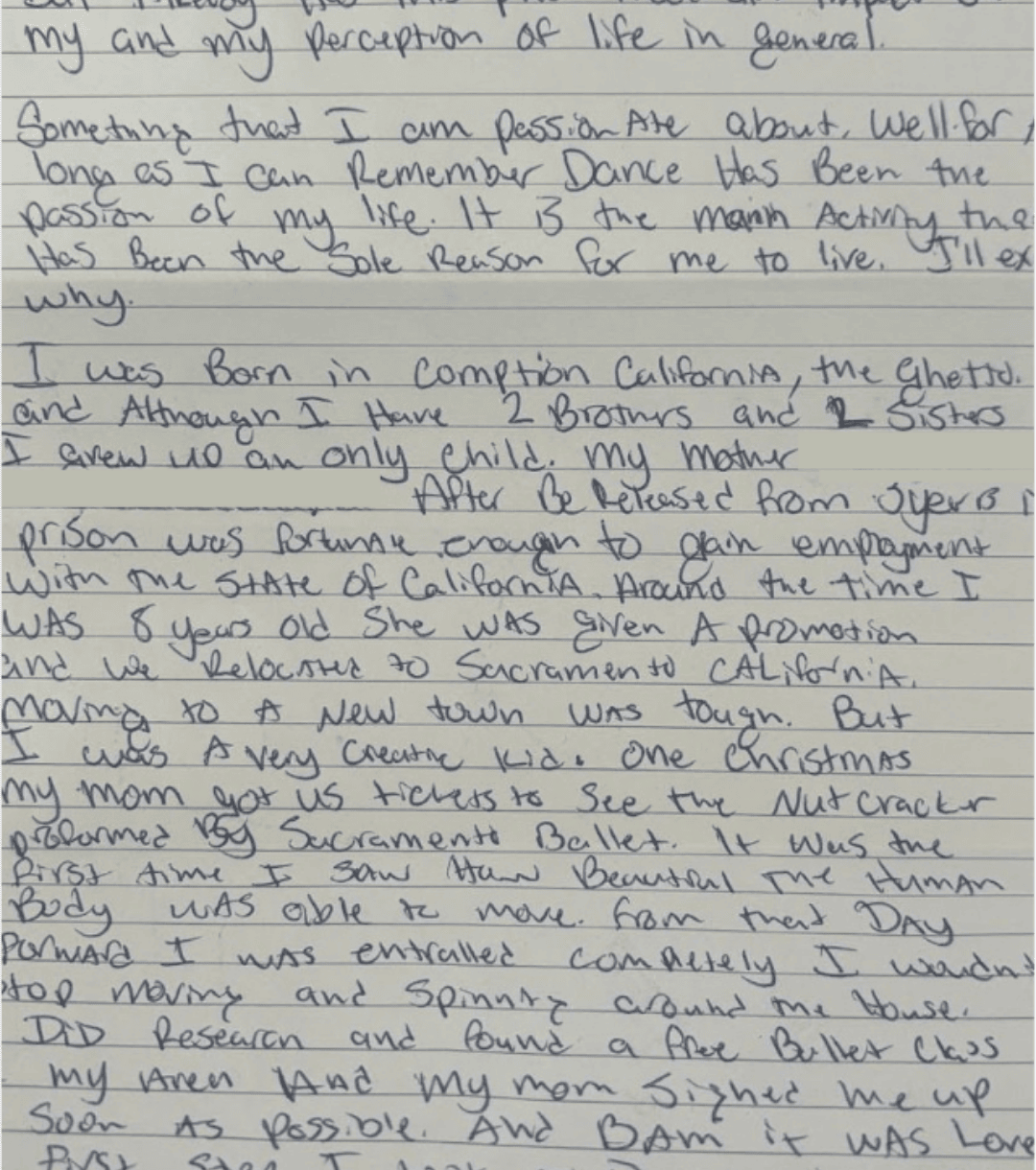Watch the Video:
Video Transcript
Ivié: I was up until four in the morning. It’s normal for me. It’s quiet then, so I’m in my room and I’ll write, paint and play with my keyboard.
Diane: Tell me a little bit about how you’ve changed here. It seems like you’ve gone through a process.
Ivié: It’s funny, after 28 years, with child abuse there’s still stuff I relive. That’s what recently has been woken up: abuse in upbringing, PTSD. I can share that PTSD is not attached to my sexual childhood abuse. It was attached to an instability of a domestic violence relationship with my parents marriage, death, abandonment and suffering. At first I didn’t want to deal with it, but I had to, so I didn’t shy away from it. It was a painful process. In order to heal, you have to feel it. I had to feel the emotions and realize I’m either going to live with these emotions to just survive and make it by or to truly live . Recently, there’s been stuff that opened up with my sister, who’s just a year older than me. I think we covered everything from my childhood, 10 years old and younger. I think just being able to not hide anyone and not be ashamed of my past that makes me who I am today, it gets me to know my authentic true self. I want to be somebody who can speak freely and openly and meet people where they are. That’s a big thing.
I still have a consecutive sentence of 30 years in New Jersey. I was like wow if they put me there, I’m going to feel abandoned. I’m not going to have the doctors and therapists that I have here. How can I fix myself? Give me some rights, you know. I wrote some self-therapy books. I gotta say that book did a lot. Doctor Jay Earley, PhD for self-therapy. The director picked up another book off the bookcase and I was like, let me see this, it said, Life’s Operating Manual. I was like, Oh my God, this is gonna fix my life! It’s by the director Tom Shadyac. One of the first things he says is, “This is not a 12 step manual to help you fix your life.” But I kept reading, and I think with the self-therapy book, for me, it also takes you deep if you go in. You not only learn about yourself and why some of the things you do, your actions and your behaviors, but you also learn about other people, and it all stems back to your childhood. So it’s a process. I got a book a couple of days ago called Healing Together, that’s about how to approach survivors and other people who were sexually abused as a child or in domestic violence relationships and how better I can approach them. For two years, we’ve been doing a suicide prevention program. We learned to pick up on symptoms and their behaviors and reach out to people. So that’s a lot, but I like it. I have a passion for that.
Diane: Is there any of your art that you would like to share?
Ivié: So one of the ones I just did. I mean, I’d go up against King Kong in a heartbeat, but I have a really sensitive nature. I can cry at commercials and stuff. I was watching Ukraine and it was just moving. I had a thing though with high heels stilettos. So, I did a globe, and then I did 24 stilettos and I did them in rainbow colors. Then I inquired how to say the word “love” in 24 different languages and so that’s the heel part of each stiletto and then they’re circling the globe. And the first top two are Ukraine and Russia. And they’re very similar. There’s just one last character, and that’s very different. I had trouble getting those because they’re symbols, and when they tried to send them to me through an email it would come out all pixelated. I would have to go sit at the kiosk the next time I was able to sync and copy them down off the kiosk. So that’s that one.
I did- I’m not sure if they refer to her as the Lady Madonna or The Virgin Mary. I’m not sure, but there is one where she has long long strands of brown hair and she has her hand on her heart. So, I did one with her. She’s like one and a half by two and a half feet. I put my right hand on her heart, and I traced it with my left hand. That took me 3-4 days, but it’s pretty cool at the end. Then I gave her prayer hands, and then I took her face and gave her hand like this and I titled her “Pardon.” Pardon me, forgive me, I still feel it. Pardon me for trying to get your attention.
Diane: I noticed you mentioned something about your sister. Would you like to share anything about your relationship with her?
Ivié: We’re still processing our mother’s passing. It’s difficult for her, but I don’t think she has had the opportunities I’ve had with therapists, so she’s still hiding and still ashamed. Both of us were sexually abused as little girls between six and seven years old. She was also in a domestic violence marriage. I know she has not reached out for therapy. I don’t think she’s there yet. Even in here you learn that you can’t beat hatred with hate, or abandonment, or other people’s actions and behaviors. I can’t judge her. It’s best for me to meet people where they are and let them in where they fit in, and even if it’s an unloving situation, bring it to heart. It just makes this whole situation a little different. I try to send her as much positive energy as possible and pray she can find somebody she can speak to. I’ve been blessed. It’s really a blessing, and you have to be able to talk about it. You really, really do. It’s so true, you have to feel to heal. You have to address these emotions and know why you have them. I came across this magazine called The Entrepreneur, and there was this guy on the front cover named Norman Reedus, the lead actor for The Walking Dead, and I was like “What? I’ve never seen it.” However, he begins his article with saying, “What you are hiding and what you are ashamed of may become or may be your greatest assets.” I read it and was really moved. He said the same thing that I got from a psychiatric evaluation: listen. Sometimes somebody just needs someone to listen. You have to find that person. Look to be that person because you can save someone’s life.
Diane: All your hard work has really paid off. Just listening to you talk is very soothing.
Ivié: Thank you.
Diane: It’s nice to know that you’ve done the hard work and looked at it.
Ivié: I wrote something that I do want to center, a piece I wrote called, “What are your dreams? What are your passions?” For me, I believe our world is broken, and my dream is that we can fix it. What if it’s not that we’re fallen but that we’ve forgotten our most greatest tokens, love, kindness and compassion put out unashamedly spoken forgiveness and second chances. Celebrating our doses, treating others as you would want to be treated. Our birthing of roses. Tell your story, own your journey. You have to reach out.
Diane: People outside do not know the impact we have on people inside. Tell us what you think of Humans of San Quentin.
Ivié: For you just giving us a voice and being able to share. We made bad choices, but for you to highlight and share with the world that we’re still human and that we can’t define a human being by making a bad choice. Things happen, and I don’t believe that there are accidents. But for you to just highlight our voices, our words, our feelings, our emotions and share them with the world. You give the world another side of who we are, a lot of people don’t know what happened or why.

